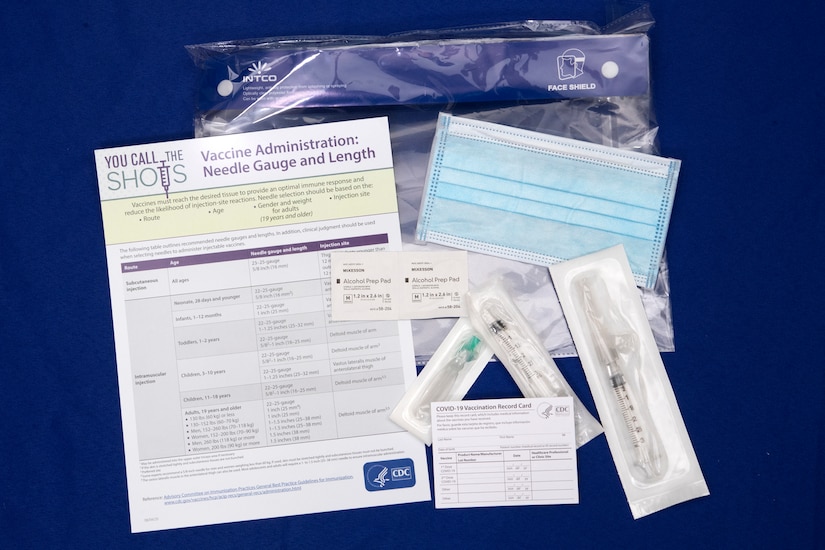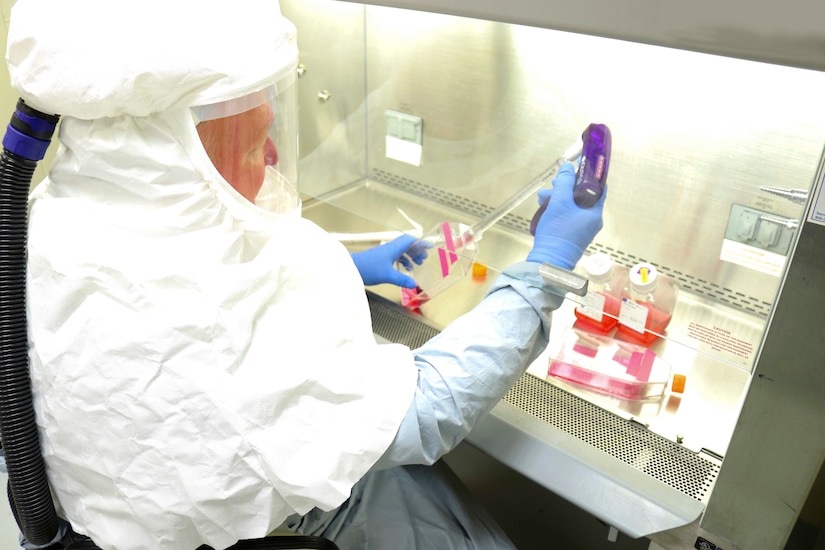Nov. 23, 2020 | , DOD News
On Saturday, the Food and Drug Administration issued an emergency use authorization, or EUA, for casirivimab and imdemivab. Administered together, intravenously, this drug "cocktail" has been shown in trials to reduce hospitalization or emergency room visits in patients who have contracted COVID-19.

The investigational monoclonal antibody therapeutic cocktail of casirivimab and imdevimab, from drug maker Regeneron, is not for COVID-19 patients who are already hospitalized, but instead for patients who have mild to moderate COVID-19 symptoms and who are at high risk of disease progression.
According to the FDA, administration of casirivimab and imdevimab proved better than a placebo at reducing viral load in infected patients. Additionally, the FDA said, for high-risk patients, only 3% of those treated with the drug cocktail eventually required hospitalization or emergency room visits, versus 9% for those who received the placebo.
"Keeping patients out of the hospital with this therapeutic can reduce the strain on our healthcare system, help hospitalized patients receive better care, and in all likelihood, save lives," Alex M. Azar, secretary of Health and Human Services, said during a conference call today.
Operation Warp Speed plans to begin distribution of the new drug cocktail where it's needed most around the country beginning Nov. 24. To start with, Azar said, about 30,000 doses will be available for distribution initially, with more becoming available in the coming weeks.
Dr. John Redd, the chief medical officer for the office of the assistant secretary for preparedness and response within HHS said distribution of the casirivimab and imdemivab cocktail will be similar to the distribution of another monoclonal, bamlanivimab. That drug is manufactured by Eli Lilly and Company, and it received a similar FDA EUA November 9.
"We will continue to manage the allocation and distribution of COVID-19 treatments in a manner that is fair, equitable, accessible and understandable to the American public," Redd said.
With bamlanivimab, distribution is now in the third week. Already, Redd said, more than 120,000 patient courses for that drug have been allocated across the nation, and over 85,000 patient courses of bamlanivimab have been delivered to nearly 2,500 care sites across the nation.
"In so doing we've taken into account both ethical and clinical considerations as part of the allocation methodology," Redd said. "We will continue to use this methodology for allocation of the Regeneron therapeutic as well."
Redd said distribution will make use of existing infrastructure within the federal government as well as the manufacturer and distributor channels. Allocations to state and territory health departments are proportionally based on confirmed COVID-19 cases in each state and territory over the previous seven days, he said.

"The federal government allocates the medication to state and territorial health departments," Redd said. "Those health departments will, in turn, continue to determine which treatment facilities in their respective states and territories actually receive the drug, as it is the health departments, not the federal government, that have the greatest insight into the needs of their jurisdictions."
OWS is a partnership between the Defense Department and the Department of Health and Human Services. Specific DHS components involved include the Centers for Disease Control and Prevention, the Food and Drug Administration, the National Institutes of Health and the Biomedical Advanced Research and Development Authority.







No comments:
Post a Comment